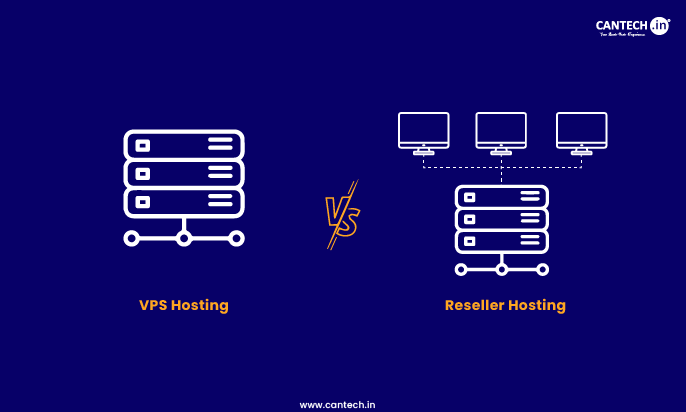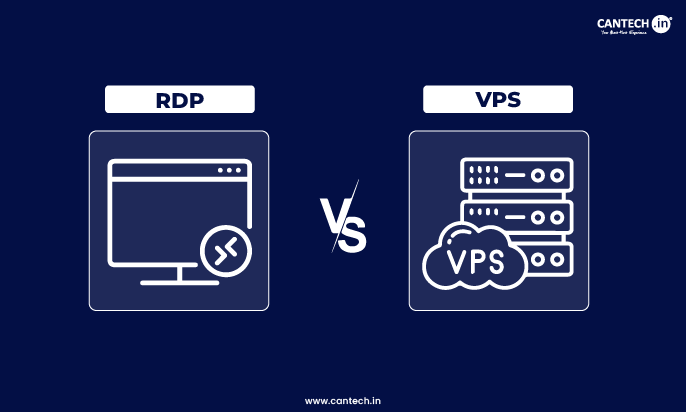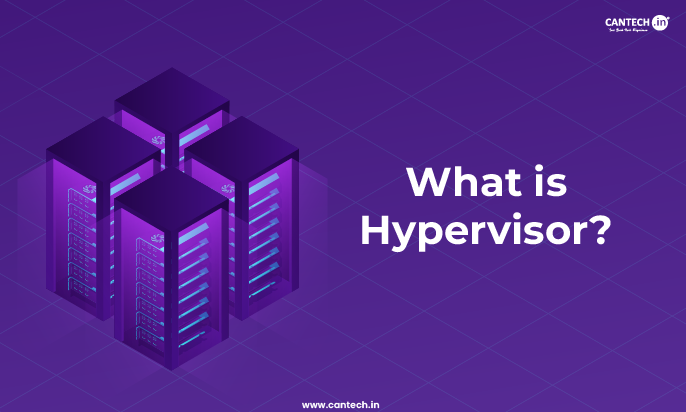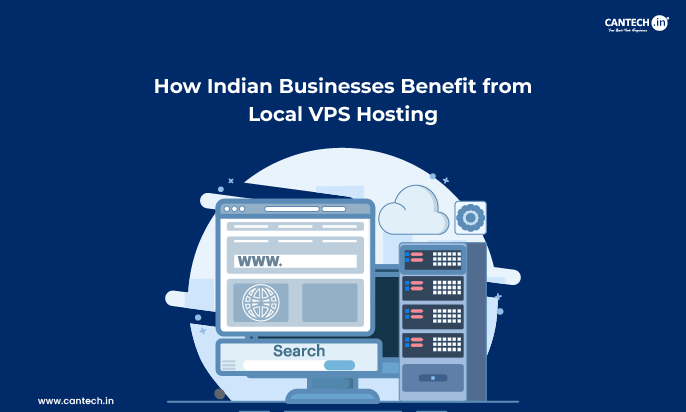As the nature of the Internet today is constantly shifting up, so does the demand for adequate, easy-to-implement, and inexpensive hosting services. A few of the popular kinds include Cloud VPS Hosting. But what does this term mean? How it works and why you should implement it to your website or application.
This blog post explores what cloud VPS hosting entails, the working of the architecture, and the benefits attainable from this service model as well as how it differentiates VPS hosting from other common hosting models. Irrespective of the veteran status of an organization or IT pro, familiarity with this technique is mandatory for appropriate hosting. Now it is time to disentangle the essentials.
By the end of this guide, you’ll be certain about what cloud VPS hosting is, virtual private server, VPS Cloud servers, and cloud hosting architecture. If these are unfamiliar, no worries—the explanations will remain easy to understand.
Breaking down the Basics: What is Cloud VPS Hosting?
What is the Cloud?
As it relates to computing, the term ‘cloud’ means servers that are located on the Internet.
Rather than using physical local disks for storage of files or a physical server within your business premise to host the applications, cloud computing allows one to use a network of servers located in other different locations. As pertains to these servers, storage, processing and computation functions are executed by them in equal measure.
In terms of hosting, cloud servers are virtual servers that will operate on a cloud platform. The server stands out for the fact that, unlike other traditional physical servers that run from one host machine, cloud servers access their resources from a pool of computing servers. This gives the most flexibility, resiliency, and fault tolerance compared to any other work done on the theme.
What is a Virtual Private Server (VPS)?
Before diving deeper into Cloud VPS hosting, it’s essential to understand what is VPS hosting. A Virtual Private Server takes the best features of dedicated server hosting while costs a lot less than a shared hosting solution. Consider a single physical computer all of which is divided into many smaller separate computers or virtual PCs each with its own CPU, RAM and disk space. A VPS is guaranteed to reduce the sharing of your resources which makes it easier to manage configurations than if everyone were allowed to influence the process.
When you combine a VPS with options provided by cloud technology, you get VPS Cloud Hosting, which represents a perfect solution for modern Web Hosting needs.
Cloud VPS Hosting: How does it Work?
Cloud VPS hosting works under the model of cloud hosting, which means that this is a multiple server environment that is redundant and scalable. Here’s a simplified breakdown:
- Virtualization Technology: Virtualization technology called hypervisor divides physical resources into several virtual private servers.
- Cloud Resource Pooling: Unlike shared hosting where resources are shared from a physical server, VPS resources are distributed across a network of cloud servers.
- High Availability: In the case that one server in the cloud has a problem, our VPS automatically migrates to another one without any disruption.
- Customizable Configuration: You have full choice to install the OS, application software and security features of your choice.
The web hosting solution which is obtained with the help of virtualization of the technology and the implementation of cloud computing is stable, secure and can be easily scaled up.
Many users confuse VPS with cloud solutions- understanding the difference between cloud hosting and web hosting can help clarify when to choose each.
Why Choose Cloud VPS Hosting?
Scalability at its Best
The most common advantage of cloud VPS hosting is that it is easily scalable compared to any other hosting solutions. This stands in contrast to conventional hosting platforms where certain resources have their specific limitations which can then become a problem or limitation themselves; Cloud VPS on the other hand, enables one to apply and allocate CPU, RAM and disk space on demand. Such flexibility makes it easy for your website or application to handle large volumes of traffic at one time.
For example, using e-commerce stores, if a site attracts many visitors during a sale, the system adjusts resources that may be associated with it. Again, the resources are scaled down once the demand is cut to make sure the consumer only incurs the costs that he had eaten. This elasticity is well suited for businesses whose flows are variable or unpredictable.
In addition, with a scalable design, you can expand the internet presence of your business without constantly transferring or improving it. For small businesses or growing corporations, cloud VPS hosting guarantees that your hosting environment grows along with your business.
Better Performance and Speed
Availability is always key for any site and cloud VPS hosting stands tall to the challenge of offering the best rates in speed and durability. Using a network of VPS cloud servers, this hosting model will guarantee your website’s accessibility in conditions of high traffic.
In contrast to shared hosting that lets different users share resources available on the server, VPS hosting grants a client a dedicated amount of resources for his or her website. Along with cloud computing, these resources are further fine-tuned for reliability. Cloud VPS provides competitive industries with improved page loading times which increases the users’ experience and promotes higher SEO ranking.
Third, cloud hosting topology means that no one point is overwhelmed; no one link can be a bottleneck to system availability. If a particular server is down, the service goes to the next server without disturbing client service and response time is remarkably fast.
Enhanced Reliability and Redundancy
One of the most convincing reasons to opt for cloud VPS hosting is its reliability. Thanks to the redundancy of cloud hosting architecture, your data and applications are distributed across multiple servers. This design minimizes risks of downtime and ensures that your website remains online even during technical failures that are unexpected.
This reliability is priceless for businesses relying on 24/7 uptime, such as e-commerce stores or SaaS platforms. Unlike traditional hosting configurations reliant on a single server, cloud VPS hosting ensures uptime by redirecting traffic to healthy servers when necessary.
Besides this, the redundancy also extends to data security and backups. Since multiple copies of your data are stored across the network, recovery is seamless in case accidental data loss or hardware failure occurs and gives peace of mind to the business owner.
Key Features of Cloud VPS Hosting
1. Dedicated Resources for Optimal Performance
Its most useful aspect is the provision of exclusive facilities for its users. Usually in the cloud VPS hosting, resources are not as crowded as they are in the shared hosting services where your website struggles to get bandwidth and the allocated processors and RAM.
This isolation increases efficiency, it optimizes your applications to work efficiently without hitches due to high activity. Whether it is a large website which receives a huge number of visitors, complicated scripts or heavy applications, dedicated resources avoid constraints that cause problems for you.
Other users cannot interfere with the hosting environment and your server – something you are in charge of. That means that there is a decrease in the probability of vulnerabilities by neighbouring accounts.
2. Full Root Access and Customization
Cloud VPS hosting gives you complete admin control over your server. This full root access means you can customize your hosting environment in any way you want, whether you want to install a custom app, tweak server parameters, and get some good old security features.
The custom nature that this hosting can feature is particularly beneficial for developers and IT professionals that need a customized hosting platform. With cloud VPS hosting, it’s limitless from starting with the selection of your desired operating system to management of applications. Furthermore, full control doesn’t mean loss of user friendliness. Intuitive control panels offered by many providers help simplify the management of servers and make them within the reach of those who aren’t so technical experts.
3. Robust Security and Isolation
Security is always missing in the hosting solution, but cloud VPS hosting is the best way to get the security in the hosting solution. This is because all of them use a virtual private server — each dutifully virtualizes its space (to be in its segregated environment) — so your data is not accessible to other users running your physical server.
Additionally, cloud host providers also place a lot of use of advanced firewalls, regular updates to your server and intrusion detection on your server. In addition to data encryption and multi factor authentication, these are the most secure in cloud VPS hosting.
And the other thing about cloud hosting architecture is its redundancy: namely, the act of making sure that your data is copied somewhere else. But it doesn’t just enhance recovery capabilities; it’s also a safeguard against future data breaches or disaster.
The Role of Cloud Hosting Architecture
Its cloud VPS hosting is based on an innovative cloud hosting architecture that differentiates it from traditional hosting models relying on a single physical server. The architecture distributes the resources across multiple servers. This redundancy guarantees high availability, ensuring that your website remains online even if one server fails.
It reduces interruption rates for businesses and provides improved customer satisfaction. When hardware suddenly crashes, or traffic spikes up in unpredictable manners, the system naturally re-routes the request to healthy servers that assure continuous access to your site.
Data storage also falls within this redundancy: copies of your data maintained on numerous servers ensure rapid recovery if hardware failure or accidental deletions happen.
Load Balancing to Optimize Performance
Load balancing is another crucial role of cloud hosting architecture, as it ensures that the incoming traffic is distributed throughout the network of VPS cloud servers, thus no server becomes overwhelmed.
Load balancing improves website speed, even during high traffic periods, by optimizing server performance. For example, in case one server is nearly reaching its capacity, it automatically sends the traffic to another server with free resources. This smooth transition avoids any hindrance in providing a smooth user experience.
Secondly, load balancing is dynamic. It changes real time based on the health of your servers and traffic patterns. This flexibility ensures that your website will always perform with the best of its abilities.
Scalability and Flexibility Built-In
The cloud VPS hosting architecture is inherently scalable and, therefore, suits business growth perfectly. While scaling your resources, one would not need to face as many disruptions or downtime on account of that.
This flexibility is particularly beneficial in industries with seasonal traffic patterns, for example, retail during holidays or media websites covering viral news. This ability to scale resources on demand eliminates over-provisioning, saving the costs but maintaining performance.
It also supports multiple operating systems, programming languages, and frameworks, making it compatible with various applications. From a simple blog to a complex enterprise application, cloud VPS hosting and Enterprise Managed Hosting covers all bases.
Comparing Cloud VPS to Other Hosting Types
1. Cloud VPS vs. Shared Hosting
The entry-level choice for most individuals and small businesses is typically shared hosting because it is cost-effective. However, shared hosting presents multiple websites hosted on the same physical server, using its resources, such as CPU, RAM, and storage. This might be cost-effective, but it presents significant limitations.
On the other hand, cloud VPS hosting provides dedicated resources in a virtualized environment. This means that performance is consistent, unlike shared hosting, where spikes in traffic on one website may slow down others on the same server.
Moreover, cloud VPS offers scalability that shared hosting cannot match. If your website outgrows its current resources in shared hosting, you’ll likely need to migrate to another hosting plan, whereas cloud VPS allows seamless scaling within the existing environment. Additionally, the isolated environment of cloud VPS ensures greater security, as your data isn’t exposed to risks posed by other accounts on the server.
2. Cloud VPS vs. Traditional VPS Hosting
Traditional VPS hosting and cloud VPS hosting apply virtualization for isolated server environments but differ in their underlying infrastructures. The traditional VPS hosting depends upon a single physical server that will result in some limitation about scalability and redundancy.
On the other hand, cloud VPS hosting is powered by a network of interconnected cloud servers, which forms a highly redundant and scalable system. In case one server in the network fails, another server automatically takes over, ensuring uptime and reliability. Traditional VPS lacks this redundancy, making it more vulnerable to hardware failures.
Cloud VPS also has an edge over traditional VPS in terms of resource allocation. With traditional VPS, you may experience downtime while upgrading resources because the physical constraints of the server are bound to come into play. Cloud VPS hosting allows for on-the-fly resource scaling without any downtime during upgrades.
3. Cloud VPS vs. Dedicated Hosting
Dedicated hosting provides an entire physical server exclusively for your use. As the name suggests, dedicated hosting suits businesses that need superior high performance and total server resources control. Such levels of exclusivity come with high costs and, not least, additional maintenance responsibilities.
Cloud VPS hosting, on the other hand, gives most of the benefits of dedicated hosting, like dedicated resources and full root access, at a much lower price. It also eliminates hardware maintenance, because the infrastructure is managed by the hosting provider.
Another advantage of cloud VPS is its flexibility. Dedicated hosting is not very flexible as the upgrade of resources generally involves significant hardware changes or even server migration. However, with cloud VPS, you can scale resources dynamically, and therefore, it is much more flexible and cost-effective for businesses whose demands are fluctuating.
Advantages of Cloud VPS Hosting
1. Unmatched Scalability
The first and foremost benefit of cloud VPS hosting is its ability to scale up or scale down in real time. In contrast to shared hosting, where upgrading resources may require downtime, Cloud VPS allows you to easily scale resources like CPU, RAM, and disk space online. Whether the site suddenly attracts a mass of visitors or when there is an influx during a certain period of the year, the system readjusts to meet the traffic conditions.
It is specifically advantageous for a business when it experiences changes usually in the capacity required like the e-selling websites during discount times or the growing start-ups. Pay-as-you-go model makes it even more affordable, because cloud VPS hosting allows you only for what you have used, making it even suitable for start-up companies.
2. High Performance
Speed is always an essence in hosting and this hosted service does not disappoint as it offers dedicated resources and state of the art architecture of cloud hosting. This hosting solution places copies of resources on several cloud centers to guarantee the system will not slow down during peak traffic times. Both aspects, load times and usability, apply a direct impact on your online presence by improving the related SEO rankings.
Another benefit that is characteristic of cloud VPS hosting is the service reliability. Its architecture is free of redundancies that might produce single points of failure. In a cluster setup, if one server has a problem, then your data is redirected to another server, increasing uptime. This reliability is especially important for companies who cannot have their services offline for any amount of time like online shops or SaaS platforms.
3. Enhanced Security Measures
Safety matters a lot in any hosting service, and cloud VPS hosting is a wonder when it comes to security matters. They are largely safe from other users or from other customers who have other VPS on the same physical servers as there is no way they can have an inflow to their space. This isolation is far better than that in shared hosting services.
Besides seclusion, cloud VPS hosting service suppliers employ firewalls, Intrusion Detection System, and consistent software updating. Due to such top notch security measures in place and regular data synchronization across multiple sites, the cloud VPS environment is secure to host critical applications and data.
4. Total control with Personalization
Unlike shared hosting, where users are restricted in their freedom to customize their hosting environment, cloud VPS hosting provides users full control over the servers they rent. This administrative control enables you to arrange a hosting environment for your needs, for instance, installing your software, setting the hosting environment or improving the applications.
Such level of control is especially useful to the developers and IT personnel that require an open and individually managed hosting. Cloud VPS hosting allows you to run your elaborate applications, host multiple websites, and deploy specific frameworks knowing that your environment is tailor-made for your requirements.
5. Cost-Effectiveness
In today’s world, all those people and companies who require cheap web hosting but still want a powerful tool that can provide high performance should consider using cloud VPS hosting. Unlike other VPS hosting providers, Cantech provides a fully dedicated resource but with the flexibility of a non-contractual monthly billing plan. The system is implemented on an as-needed basis only and you have no need to provision for more than you require.
Also, as the provider deals with infrastructure, organizational transactions are saved on equipment investment and maintenance charges. This affords many startups and bootstrap existing companies a reduced cost to fund other areas of their business while enjoying a superior hosting experience.
6. Flexibility across Applications
Some of the most important advantages of cloud VPS hosting include its scalability across various-functional areas. That’s where cloud VPS hosting comes into play no matter if you are maintaining small websites, operating on an internet store or running high-resource applications, development environments, and more.
This has been made achievable by the ability of TensorFlow to work with different operating systems, programming languages as well as frameworks. Most entrepreneurs have unique needs to cater for in their business, and with cloud VPS hosting, one stops needing different services to meet their technical needs because the program can do it all.
Conclusion
As the demand for flexible and reliable hosting is growing, cloud VPS hosting is also emerging as a market leader. This hosting model combines the scalability of cloud computing with the robustness of a virtual private server, making it ideal for businesses, developers, and agencies alike.
Now, one can understand the essence of what cloud VPS hosting is and its working in the cloud architecture to host a website that ensures maximum uptime, performance, and security. Small blogs or huge ecommerce web platforms can have ultimate flexibility and control using VPS cloud servers.
Embrace the power of cloud VPS hosting and future-proof your online presence today!
FAQs
What is Cloud VPS Hosting?
Cloud VPS hosting is essentially the best features of both cloud computing and VPS hosting. It creates isolated environments using virtualization technology on a network of interconnected cloud servers. You, therefore, enjoy dedicated resources such as CPU, RAM, and storage that helps with reliable and consistent performance. This form of hosting is ideal for businesses requiring high performance and flexibility without experiencing any downtime in their operation because of its seamless scalability and redundancy.
How is Cloud VPS Hosting different from Shared Hosting?
Shared hosting is a type of hosting where multiple websites share the same server resources. This may lead to inconsistent performance, as one site consumes more resources than others. Cloud VPS hosting, however, offers a private virtual server with dedicated resources, which ensures better reliability and speed. It also provides better security and customization options, making it more suitable for businesses or developers with specific requirements.
Can I scale resources with Cloud VPS Hosting?
Yes, scalability is one of the most prominent features of cloud VPS hosting. It allows you to adjust resources such as CPU, RAM, and storage based on your requirements without experiencing downtime. Whether you encounter unexpected traffic spikes or need additional resources for new projects, cloud VPS ensures your hosting environment can grow with your needs seamlessly.
Is Cloud VPS Hosting secure?
Absolutely. Cloud VPS hosting is one of the most secure. Since virtual private servers work in a different environment from other users, there are lower risks of data breaches and interference with other users’ data. There are also providers that will be implementing robust security measures that would include firewalls, frequent updates, data encryption, and intrusion detection systems. Data integrity can also be ensured through regular backups.






